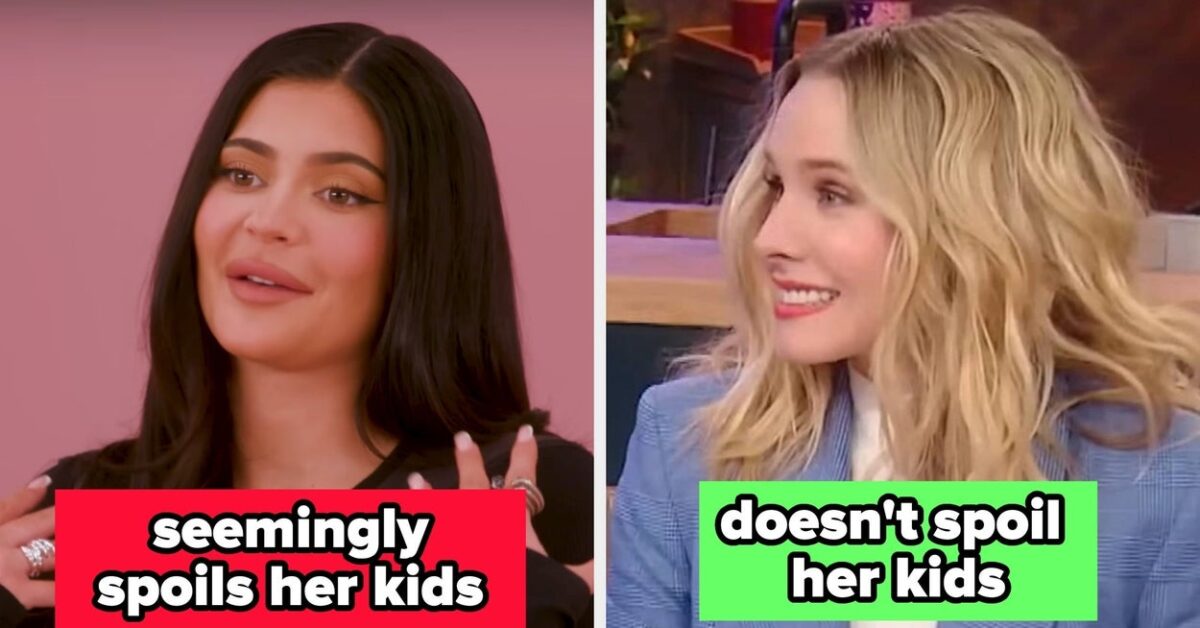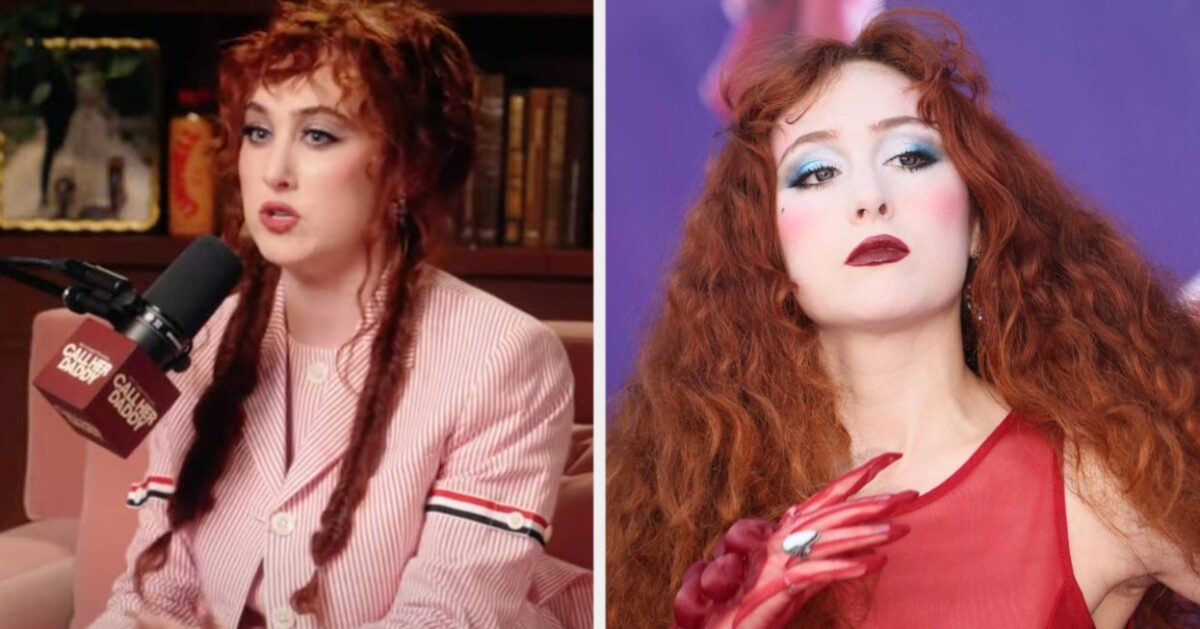
‘Dumb Money’ Writers Dish on Pete Davidson and Their Reddit Meme Stock Movie
Nov 12, 2023
The Big Picture
Dumb Money is a David vs. Goliath story based on the true events of regular people who took on Wall Street and got rich through GameStop stocks. The film explores the life of Keith Gill, played by Paul Dano, who starts a movement by investing in GameStop and gaining a massive following on social media. Dumb Money is a comedy that tackles serious themes, such as wealth disparity and the power of social media, while also including humorous moments and unconventional metaphors.
Dubbed The Big Short for the reddit generation following its premiere at this year’s Toronto International Film Festival, Dumb Money is a film with a lot on its mind. On the one hand, it is about the very recent history where a group of everyday retail investors led by the real-life Roaring Kitty AKA Keith Gill (Paul Dano) came together to try to beat the wealthy at their own game. On the other, it is a comedy where Pete Davidson plays Gil’s brother who he eventually runs around naked with in what ends up being one of the film’s climactic scenes.
With the film now on VOD, we sat down again with co-writers Lauren Schuker Blum and Rebecca Angelo to talk about striking this balance, what jokes they wrote for Davidson, the way they approached the ending of the film, and what is coming next for them with Cruella 2.
Dumb Money Dumb Money is the ultimate David vs. Goliath tale, based on the insane true story of everyday people who flipped the script on Wall Street and got rich by turning GameStop (yes, the mall videogame store) into the world’s hottest company. In the middle of everything is regular guy Keith Gill (Paul Dano), who starts it all by sinking his life savings into the stock and posting about it. When his social posts start blowing up, so does his life and the lives of everyone following him. As a stock tip becomes a movement, everyone gets rich – until the billionaires fight back, and both sides find their worlds turned upside down. – Sony Pictures Release Date October 6, 2023 Director Craig Gillespie Cast Paul Dano, Pete Davidson, Vincent D’Onofrio, America Ferrera, Nick Offerman, Anthony Ramos, Sebastian Stan, Shailene Woodley, Seth Rogen, Dane DeHaan, Myha’la Herrold, Talia Ryder, Clancy Brown, Kate Burton, Larry Owens, Olivia Thirlby, David Faber Rating R Runtime 104 minutes Main Genre Comedy Genres Biography, Comedy, Drama Writers Lauren Schuker Blum, Rebecca Angelo Studio(s) Columbia Pictures, Stage 6 Films, Black Bear Pictures Distributor(s) Sony Pictures Releasing
COLLIDER: When you both were working together as journalists did you think there would come a day where you would write a movie about an unprecedented moment in American history about Gamestop that also stars Pete Davidson saying aloud the words that you had written?
REBECCA ANGELO: [Laughs] I think, like, three days before we went into production on this movie we also didn’t believe that that was actually going to happen.
LAUREN SCHUKER BLUM: I’m glad you asked that because we ask ourselves that exact question. We’re like, “How did this happen?” [Laughs]
ANGELO: Yeah. I mean, we grew up just like middle-class kids in suburban America. We went to college and we needed jobs after we graduated. A screenwriter was not a profession, it was an absurd fantasy, so we went to college. We wanted to be storytellers. We love doing research, and we love telling true stories, so we got journalism jobs where you have, like, health insurance and a steady paycheck and, like, a 401k that you contribute pennies to every month. So the idea that 11 years ago, when we set out in our spare time to try to teach ourselves how to be screenwriters, that we would now be talking to you and have had this opportunity to work with these incredible actors, these incredible comedic actors and dramatic actors, it’s beyond our wildest dreams.
BLUM: I think one of the things we loved about being reporters was the chance to talk to people who were really different than we were, right? You know, we’d write their quotes down, but like write their voices about stories that were far from our lived experience. Then when we became screenwriters, everyone kept telling us to write our story, which we found to be very boring. [Laughs] And it took us a while.
ANGELO: And also superficial, right? Because what we’re looking for is the human connection, the empathic connection to every single character we’re putting on screen, and it’s just silly to think that those connections can only come from people who look like you and have lived the same or very similar lives that you do. Like the project of storytelling is empathy, is doing the hard work of putting yourself behind somebody else’s eyes, especially somebody who seems to live a very different life than you.
BLUM: Which, we were then on a TV show, Orange is the New Black, and learn from Jenji Kohan’s example of what that was – to be a writer is to look at another person and research their life and get into their mindset and try to find the shared humanity.
ANGELO: And not to be afraid of the criticism and the feedback from people whose lives more align with the characters, to listen to them before, during, and after, and to have humility, but also to have the bravery to try.
BLUM: And so it was the experience of being on that show that we thought, like, we got into journalism to tell stories far from our own, to have this kind of like radical empathy with other characters, and let’s do that in our own storytelling as screenwriters, too. So we started writing movies about people that had very different lives.
ANGELO: What are you talking about, Lauren? You’ve lived the same experience as Pete Davidson.
BLUM: [Laughs] Exactly. And we also got really interested in writing men, right? And writing men who speak very differently than us.
ANGELO: There’s a fun, subversive quality to that. I mean, I think when we started out in the business, people were like, “Oh, you’re girls,” like, “Here’s a movie about, like, a bridesmaid who really wants to get married.” And our instincts took us to very, very different stories, I think partly because we have a financial reporting background, but also just because we have that curiosity, and it’s just how we’re built. But there’s something fun and subversive about women writing men’s voices when, for millennia, men have written women’s.
BLUM: Particularly for a long time in Hollywood, men got to write the dick jokes, and we were like, “You know what? We want to write the dick jokes.”
Did you get to write any dick jokes for Pete Davidson or did he come to you?
BLUM: I think you’ve seen them in Dumb Money! [Laughs]
So those were yours?
BLUM: Oh, yes, yes. We pitched out that very last scene running on the track to Craig Gillespie because we found an article about Keith Gill’s brother…
ANGELO: Using the Wayback Machine. We found some stuff from their college newspaper, like these little blurbs about Kevin Gill, who by the way, is the coolest, funniest, best dude.
BLUM: An extraordinary person.
ANGELO: And a great Door Dasher.
BLUM: Oh yeah, we should say that everything in the film is true, we researched the hell out of it. The one thing we invented is that when we cast Pete Davidson in the role of Kevin Gill, who’s a real person, we realized nobody would buy Pete Davidson as a great Door Dasher and Kevin Gill has, like, a 99% rating, so we had to make…
ANGELO: He has a lot of pride in his work. He’s really smart and funny. We don’t know him at all, but we know him from social media.
BLUM: But Pete Davidson will never pass as an excellent Door Dasher, so we had to then make him like a bad Door Dasher. But Kevin is a great Door Dasher. Anyway, we found this article about [how] Kevin ran a mile naked in this lightning storm, and it was like legendary on campus, and so we pitched that scene at the end of the movie to Craig, and he was like, “What? Naked run?” And we’re like, “Craig, we’ll break the internet!” Like, if Pete Davidson runs naked in our movie, everyone will go crazy.
ANGELO: And we were like, “You know, the thing about Pete, right? The thing people say about Pete,” and Craig was like, “What are you talking about?” And we were like, “Okay, boss, let us just try.” And we used that as a kind of metaphor for victory in this moment, and just wrote it and proved it out for Craig.
BLUM: Yes, we wrote this third-act metaphor to the movie about how being brave is like running with your dick out, and he read it and he was like, “This is good. I will shoot this final scene if it’s so important.”
ANGELO: You know, it’s important to fight for what you believe in.
BLUM: Yeah, but this is why you have women write the dick jokes because then you get, you know, a scene like that.
Dick jokes as metaphors.
ANGELO: Yeah. On the flip side of that, one of the funniest and most unexpected pieces of feedback we’ve gotten since the movie came out is people saying that they’ve never seen a movie where men do so much childcare and domestic work and that it’s funny that it maybe takes women to write that. We’re super lucky our husbands take care of our kids, they help around the house, and it was like a piece of shared humanity that we found at this time when everybody, even the rich people, were locked in their homes or isolated. Like, you see the billionaires doing their kids’ dishes, and you see the regular folks doing their kids’ dishes and trying to quiet a crying baby while they’re doing a business call, which is, I think, maybe the most relatable thing about the pandemic, at least for us.
BLUM: Yeah, it was important. We saw men doing those things, so we put into the movie.
Image via Sony Pictures
Yeah, I wanted to ask, especially journalism, I was like, “Wow, you all have health care with journalism? What a time.” But I did want to ask about the specifics of capturing a moment in time with the pandemic that was so upheaving of everything we’d known and was also so recent because one of the things I was struck by is it doesn’t feel like it was made just this year, it feels like it was made with enough time to have passed. It feels like it could have been made 10 years from now. So I was curious about the process and conversations you were having about bringing to life those details as a backdrop for all of everything else happening, too.
BLUM: I think we took a lot of risks that paid off.
ANGELO: Our feelings, basically, is that every movie, if done right, is a period piece. And this is a super recent period, and it’s hard to be processed about a super recent period. One of the aspects of our work is that any kind of screenwriting, any kind of filmmaking is an iterative process. I think because Lauren and I are a partnership and because we have a background in journalism that that may be even more so for us. We do so many drafts, we work it, we push on every weakness and soft spot, we try every version to find the best version, and I think that helped us process in a shorter period of time this bizarre time capsule, out of human experience that we had just gone through for a few years.
BLUM: But I mean, we were sitting on set in masks and the characters are in masks.
ANGELO: Yeah, Lauren calls it method writing.
BLUM: It was like method because we were locked in our homes writing this screenplay. I mean, I think we knew, even the in the moment, that this whole story wouldn’t have happened without the pandemic. It was so tied to the moment.
ANGELO: But at the same time, it wasn’t anomalous. It was like the pandemic heightened all these things that we were experiencing as a civilization in the years leading up to it. I think everybody is lonelier. Social media has both brought us together and kept us apart. We have lost so many of the communal gathering spaces that we used to have. Then, you know, churches were closed, community centers were closed, schools were closed, so that ratcheted the lower grade experience up to an 11.
BLUM: It wasn’t like Reddit came out of nowhere, right? It’s been with us for a while, but it reached this, like, fever pitch. I mean, even stock trading, right? It has never been higher than it is today, right? So that trend has just accelerated since this moment, it hasn’t gone away in terms of retail stock trading.
ANGELO: Yeah, so we just did our best, right? I mean, it was a collective trauma, the pandemic, and you have to be selective, and you have to curate the experience for the audience. You have a responsibility to entertain and to educate and to take people on a ride. And if it’s too much about the pandemic, you’re going to push people away.
You didn’t want to make Steven Soderbergh’s Contagion.
BLUM: It was a way of talking about the pandemic without ever saying the word COVID, without seeing a lot of hospitals. But, you know, I think it was a huge challenge, and there were definitely risks. Craig Gillespie spent a lot of time being like, “Okay, can he have a cup of coffee so he can take off his mask? Can these characters be eating so that they’re not covered the whole time?”
ANGELO: He never wanted to cheat in telling the story, right? And I think there’s an impulse, especially trying to capture this really diffused, modern era where people aren’t interacting in person, to force scenes where they’re in a room together, or in a “pandemic movie,” do a scene in a hospital or a Gamestop store where they’re not wearing their masks, and we never wanted to cheat. So, it ended up organically yielding, I think, powerful imagery. We made choices, for example, masks, and to use that as a kind of visual metaphor for status, like rich people don’t have to wear masks when they’re being driven by a chauffeur who does have a mask. And then, also, the mask becomes, like, over your nose, how many times you were told to put your mask back up over your nose? It becomes like a symbol.
BLUM: I think that ethos, too, of not cheating. We knew from the outset we wanted to tell a grounded version of the story. Not every screenplay we write is grounded—we’re writing Cruella 2—but I think with this story it was so important to us that you can see it in the movie in a few different ways in our approach to the pandemic. We have characters who don’t meet, are never going to meet, are never in the same room, we didn’t pretend they were. We worked very hard in the script to have them be in conversation…
ANGELO: And in conflict, building ideas, fighting each other…
BLUM: …fighting across scenes, but also having images that echo so that you feel like our hero and our villain are both running. We have a Wall Street guy washing dishes, and we have a retail trader washing dishes.
ANGELO: Or we have billionaires talking about how a company is worthless, and you play that in voiceover, intercutting over scenes of an employee of the store who is frustrated by his bosses, but also this is the center of his community and of his life. So you can show a conflict without having people argue at each other.
BLUM: And we even have it in terms of these like TikTok videos and wanting to show this was a bottom-up movement and not one that came from the experts telling people how to invest. The movie is really different than Wolf of Wall Street or even The Big Short in that way; this was a movement that was by the people for the people. In our research, we saw how they taught each other what a short squeeze was, like people were watching, they were on Wall Street bets reading about it, or they were watching a TikTok. So it felt to us really important, again, to not cheat that, to not do our version of Margot Robbie in the bathtub, but to actually take those real TikToks, put them in the script, and put them on the big screen, and say, “These people deserve the big screen treatment.”
ANGELO: And to be clear, we revere McKay, and we love The Big Short.
Oh yeah, I didn’t take that as a criticism.
ANGELO: But just to underscore the point, like Margot in a bathtub explaining something that only geniuses saw, and, like, visionaries and prophets in this world saw, is exactly right, I think, for that. For us, it’s not right at all because it’s not about people on high looking direct-to-camera and explaining. It’s about regular people saying, “No, these concepts aren’t too opaque, they aren’t too complicated. We’re gonna participate in this, and we’re gonna do it by teaching each other in really funny, dashed off, thoughtful TikTok videos, memes, YouTube videos…”
BLUM: But again, we don’t wanna recreate those and make them glossy and Hollywood.
That would have been a disconnect.
ANGELO: Exactly. It would have been condescending, and, like, they don’t need it. These people did it the best. [Laughs] We don’t need to rewrite it. We don’t need to put it in our own voice. We can elevate a dorm room TikTok video to the stuff of cinema where it belongs, right alongside a tear-jerk monologue from America Ferrera.
BLUM: And to his credit in editing, we had an extraordinary editor on this movie, Kirk Baxter, and he and Craig both, whenever we tried to recreate anything, they’re like, “It doesn’t have the same energy of that. There’s an energy of this moment…”
ANGELO: Like an authenticity. I think viewers now have a bullshit detector, unlike anything we’ve ever seen. People know as soon as something is even the tiniest bit inauthentic, and we didn’t want to make that mistake.
Image via Sony Pictures
I definitely want to ask about people’s bullshit detectors a little bit and how that factors into it. With what you were talking about, of wanting to have a balance between entertainment and truth, because the movie is out, I want to get a little bit into the ending of it. I was curious if you had written the end title cards as it has this underdog, “Ra ra, the dumb money won’t be ignored,” and as a little bit of a complicated thing, is reality so simple? There are still people that are holding the line, there are still people that are invested in this, but there are still these inequalities. There was this great reviewer, [Adam Nayman], that I had read who said, “The house doesn’t always win, but it’ll always remain standing.” And I was curious about the balance you all had in approaching the ending.
ANGELO: Yeah, we have so much to say on this issue. Yes, we wrote those end titles, and it is the thing that we spent the most time – where do we want to end this story, and what note do we want to end on? So yeah, I think, first of all, the standard is not, “We only tell stories about movements that changed everything forever.”
No, absolutely.
ANGELO: There is something extremely important, especially at this time when it is so easy to look around and feel hopeless at how broken and rigged everything is, to tell a story of the victory in and of itself. It doesn’t have to be a lasting victory, but it is worth celebrating moments where people came together, joined their voices as one more or less. These movements are messy, and people win and lose, and also people have different definitions of what it means to win and lose. But we thought it was worth memorializing this story in cinema because it is a little bit like a spark, right? And a spark can ignite a fire, or it can easily be snuffed out, but there’s something beautiful about taking something as ephemeral as a single spark and and committing it to celluloid forever.
BLUM: And I think, you know, those titles, we were very aware when writing them that GameStop has a really complicated legacy, and some people are like Keith Gill. Well, no, almost no one’s like Keith Gill. [Laughs] But there are the Roaring Kitties of the world, Keith Gill, who made millions and millions of dollars. There are college girls who made some money off this, there are people like America Ferrera’s character who lost. So many people were like, “Oh my god, my heart was broken. Why did she have to lose?” It’s important because we’re left holding the bag…
ANGELO: But also, she stuck to her guns, right? I think we are used to measuring success only in terms of money won or money lost, and there is a principle at stake here. We talked to dozens of these people, and yes, we heard regrets about people who bought too late or sold too early and didn’t make out like bandits, but the most emotional and powerful regrets we heard were from people who sold and felt like they betrayed the movement. And there was something even more powerful than money at stake here; it was about being part of something, being responsible to other people, and making a stand against something predatory, something anti-American, something ugly, the worst aspects of capitalism, and that people are willing to pay money to express their beliefs.
BLUM: And that’s what the end cards are getting at is this idea that, you know, who won, who lost. You can kind of tally up the money and you can say, like, “Well, Wall Street is back to business, and the hedge fund guys are still rich, and retail is, by and large, still not that rich.” But you could also look at this as, like, here’s this group of retail who was basically reviled by Wall Street…
ANGELO: When they were seen at all.
BLUM: Right. They were seen as invisible, right? It’s like retail doesn’t matter. At least we have our characters say versions of that and kind of laugh at the idea of retail traders. And this group has become visible for the first time, like you open the Wall Street Journal, you see meme stocks in the headline, you see retail traders in the headlines, there are reporters. You know, when we worked there, nobody covered retail trading or meme stocks. Now you have reporters who their whole job is to do that.
ANGELO: There are analysts at every hedge fund whose job is to monitor and there are apps and services that you can subscribe to now that their entire company is that all they do is monitor.
BLUM: And you also see, you know, a few weeks after our film came out, the SEC came out and made this sweeping policy change, basically forcing hedge funds, like the hedge funds we have in the film, to disclose their short position.
ANGELO: To be much more transparent about this practice, which is a vital aspect of our economy, but also completely out of control.
BLUM: The change that’s happened since the film came out, basically means shorting now, you have to disclose every month so it’s actually much riskier to short and that’s a very big deal. I think it’s probably the beginning of some changes to come.
ANGELO: But these things are complicated, and this is a giant ship, and it’s profoundly broken. So the notion that a one/two-month period in 2021 is gonna change everything is Pollyanna-ish.
BLUM: It’s proved that this group has become visible in a way that they weren’t.
ANGELO: And even, you know, we’re emailing with Gary Gensler, the head of the SEC. This movie has become an opportunity to talk about this and to bring senators and congresspeople into a bigger conversation about how we wanna shape our financial markets. And to be part of the beginning of this new era of the conversation, I think, is like our highest aim and exciting.
BLUM: And even the title of the film, Dumb Money, that phrase was not around that much. And I think people are looking at that term and investigating it.
ANGELO: Well, it was accepted earnestly, right? Like Wall Street called themselves smart money and regular people were dumb money, and to embrace that insult as like a cris de coeur, as like an inspiration, like, “This is what they think of us. We are going to teach them a lesson,” that’s cool.
Image via Sony
As a last question, how do you all then shift—and I mean this sincerely—how do you all shift from this to something that is a little bit more, I’ll say, heightened in the way that you had said it, with Cruella 2? I was curious where you all are at with that, and did you take anything from this into that, or have you begun writing on that, or where is kind of the status there?
ANGELO: Very much so, yeah.
BLUM: It’s funny, doing this press tour for Dumb Money, people are like, “Alright, so tell us about your financial expertise and payment for order flow!” And we’re like, “We’re screenwriters! What?” [Laughs] I mean, we’re storytellers, this is a story, that’s a story.
ANGELO: Yeah, and we’re always looking for the emotional story and the human connection to the characters, and we love a badass, rollicking, wild tone, and we love Craig Gillespie, and so there’s a lot of surprisingly common DNA in the two projects. But the thing that matters most is serving this incredible character, giving her the greatest journey she can have, and having the most fun doing it. Yeah, it stretches different muscles, but the essential process is the same, which is just finding the best version of the story, the most outrageous situations, the most cinematic, giving the audience a wild ride. Our number one priority is telling a story that’s fun and that’s going to move you. And beyond that, it’s just bells and whistles, and Lauren and me sitting in a room just making each other laugh.
BLUM: We do strive for authenticity or to be true to the story in Dumb Money, and here to be true to the character. Like what just happened yesterday, that really feels true to this character. And again, never to cheat or go for something that doesn’t feel really good in our hearts.
So it sounds like you’re in the midst of the process of it right now, of writing it.
BLUM: Yeah, our script is behind you.
ANGELO: [Laughs] Yes, on the screen.
Is there any time that you’re planning to begin production on that now that the strike is over?
ANGELO: That’s above our pay grade.
BLUM: Great question for Craig Gillespie.
ANGELO: [Laughs] Yeah, or for many executives at Disney.
Dumb Money is available to stream on VOD in the U.S. now.
WATCH ON VOD
Publisher: Source link
27 Celebrity Parents Who Spoil Their Kids Or Refuse To
27 Celebrity Parents Who Spoil Their Kids Or Refuse To Many parents value providing a better life for their kids than they had growing up. However, when those parents are rich and famous, it can be easy to indulge them.…
Apr 4, 2025
Bachelorette’s DeAnna Pappas Breaks Silence on Her Arrest
Jenn Tran & Devin StraderStatus: Split During the season 21 finale of The Bachelorette, it looked like The Bachelor alum Jenn Tran was finally getting her happy ending with her final pick Devin Strader. But Jenn, 26, revealed on…
Apr 4, 2025
People Are Coming For Chappell Roan After She Said Pop Stars Shouldn't Have To Be Political Experts
Chappell argued it's "impossible" for pop stars to stay in the know.View Entire Post › Disclaimer: This story is auto-aggregated by a computer program and has not been created or edited by filmibee.Publisher: Source link
Apr 3, 2025
Gwyneth Paltrow, Chris Martin’s Daughter Apple’s College Major
Gwyneth Paltrow’s Daughter Apple Martin Addresses “Really Upsetting” Criticism in Rare InterviewYou won’t want to object to Apple Martin rare insight into her college life. Gwyneth Paltrow and Chris Martin’s 20-year-old daughter revealed what she is studying at Vanderbilt University—and…
Apr 3, 2025











